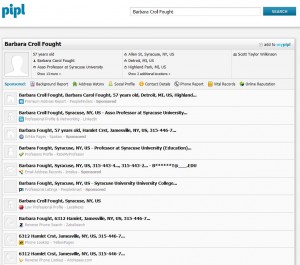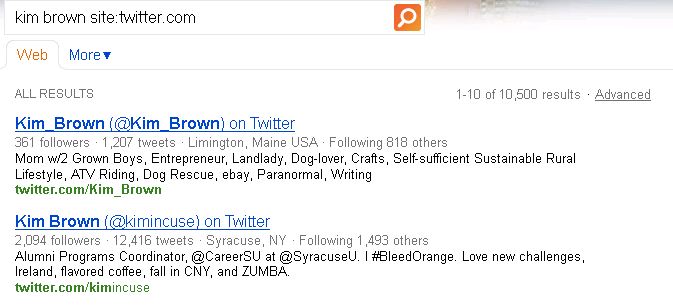
When I put in my name I got six screens of info -- most of it was about me, but not all, so be careful.
Have a name of someone but can’t find much about him or her online? Search engines only go so far. You will likely find more at PIPL.com which searches the deep web.
That means it searches into databases and public records that might not come up on a search engine. Piple says it finds information “from personal profiles, member directories, scientific publications, court records and numerous other deep-web sources.”
Besides a full name, you can put in a user name, a telephone number or an email. It’s best, obviously, for people who have an online presence.
But beware: People have similar names so make sure you carefully look at the information comes up, as it could be a combination of several people with that name, or someone with the same name but not the one you are seeking.







